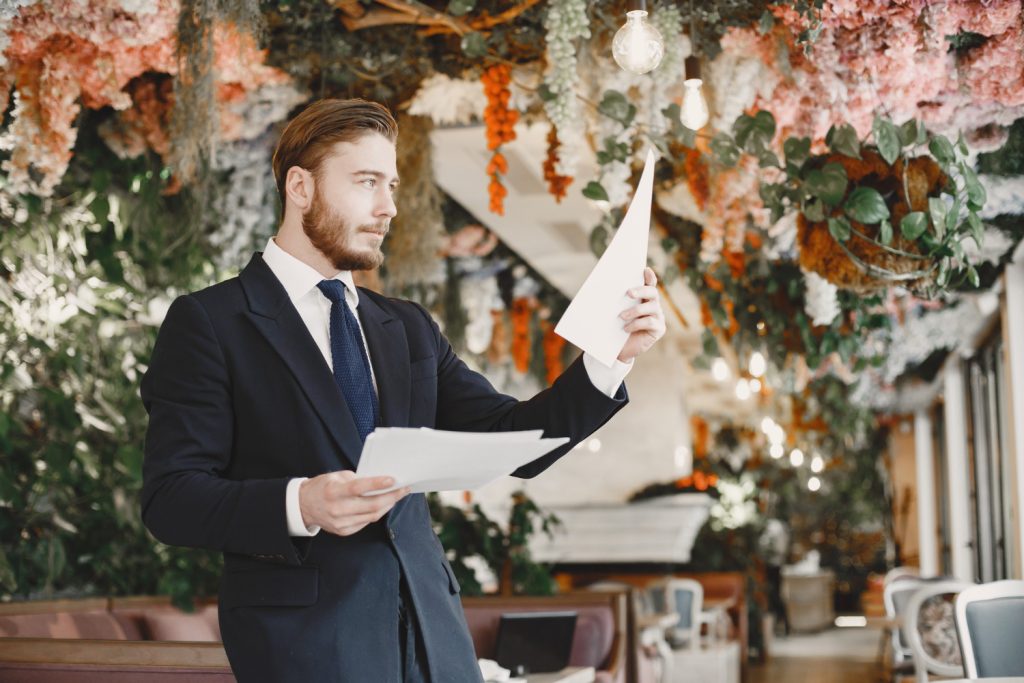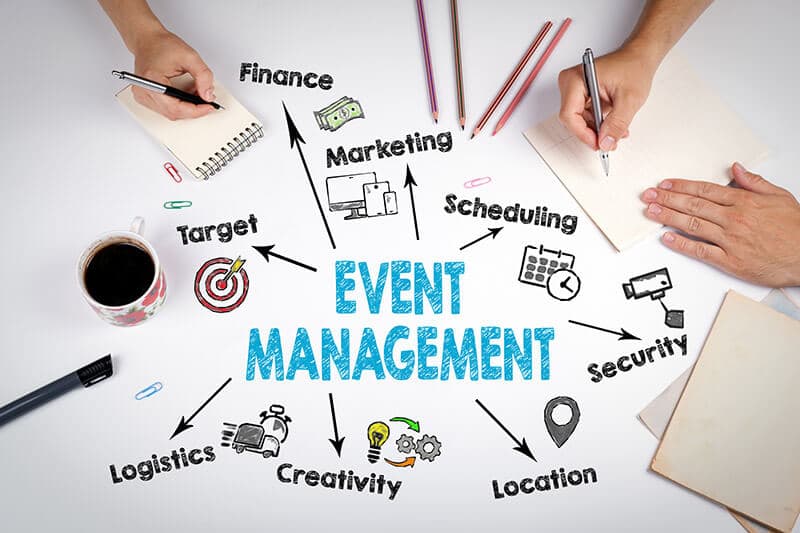Unlocking the Secrets of Effective Event Planning for Memorable Experiences
Effective event planning requires a critical strategy that goes past plain logistics. It includes a careful factor to consider of goals, target market, and styles. Organizers must concentrate on developing customized experiences that involve attendees and foster connections. The course to achieving unforgettable occasions is commonly filled with challenges. Recognizing the subtleties of efficient planning can disclose the potential for genuinely impactful events. What are the key aspects that make an event remarkable?
Defining Your Event Goals and Objectives
Clearness is vital when specifying event objectives and purposes, as it establishes the structure for an effective planning procedure. By verbalizing particular objectives, event organizers can develop a clear instructions and assurance that all initiatives straighten with the desired end results. Purposes should be measurable and obtainable, making it possible for coordinators to track progression and evaluate success successfully.
Identifying the overarching function of the event, whether it is to enlighten, captivate, or promote, plays a significant role in shaping each decision made throughout the drawing board. Stakeholders need to be associated with this preliminary meaning phase to collect diverse perspectives and foster a feeling of possession.

Understanding Your Audience
Understanding the target market is important for efficient event planning. This involves determining target demographics and assessing their preferences to customize the event experience. By getting insight right into the target market's qualities and rate of interests, coordinators can produce extra interesting and relevant occasions.
Recognizing Target Demographics
Just how can event coordinators guarantee their gatherings resonate with participants? Determining target demographics is essential for crafting memorable experiences - event planning companies charlotte nc. Successful organizers begin by performing thorough research study to understand the age, rate of interests, and preferences of their audience. This includes studying variables such as geographical location, social backgrounds, and socioeconomic condition. By segmenting prospective attendees right into unique groups, organizers can tailor event elements, consisting of activities, styles, and locations, to align with specific group attributes. Involving with prospective guests through surveys or social media sites can supply useful insights into their assumptions. Inevitably, this targeted approach enables event organizers to develop tailored experiences that foster link and interaction, making certain that gatherings not just satisfy yet go beyond the wishes of their target market
Evaluating Target Market Preferences
As soon as target demographics are determined, the following action involves evaluating audience preferences to create a truly appealing event experience. Recognizing what reverberates with the audience is essential for tailoring material, tasks, and total atmosphere. This process can be attained via studies, social media sites insights, and previous event responses, which provide beneficial data on preferences, interests, and assumptions. Event organizers must focus on essential components such as preferred themes, possible audio speakers, and desired networking possibilities. Furthermore, watching on emerging patterns can help in expecting audience needs. By leveraging this details, organizers can make occasions that not only draw in attendees however also urge energetic involvement, guaranteeing an unforgettable experience that straightens with audience wishes.
Crafting a Special Theme and Atmosphere
To produce an unforgettable event, organizers must initially define the event's purpose, as this fundamental action forms the general experience. Aesthetic cohesion plays an important duty in establishing a style that reverberates with participants, making each element of the style work harmoniously. Involving all senses better boosts the atmosphere, ensuring that guests have an immersive experience that sticks around long after the event concludes.
Defining Your Event's Function
While many event planners concentrate on logistics and visitor checklists, defining the event's objective is important for crafting a special motif and environment. Establishing a clear purpose allows planners to align all elements of the event, from decor to activities, with a cohesive vision. This clearness helps in picking a style that resonates with participants, making certain that the experience is both remarkable and engaging. As an example, a company hideaway might stress synergy and technology, while a wedding celebration might focus on love and celebration. By thoughtfully taking into consideration the event's intent, coordinators can produce an environment that not just captures the essence of the celebration yet likewise fosters purposeful links amongst visitors, improving the overall experience.
Creating Aesthetic Cohesion
Developing visual communication is important for changing an event into an unforgettable experience, as it unifies numerous components under a single, engaging motif. This procedure begins with a clear vision that guides the option of shades, style, and materials. Each component ought to show the overarching motif, whether it be a rustic wedding or a company gala. Interest to information, such as matching table setups and signage, strengthens this unity. Lights plays a vital role, enhancing the environment and highlighting vital areas. In addition, integrating regular branding aspects, such as taglines and logo designs, solidifies the theme while creating a professional touch. Ultimately, visual why not try this out cohesion not just astounds guests however also cultivates a feeling of belonging and involvement throughout the event.
Engaging All Senses
Engaging all senses is necessary for crafting an unique theme and ambience that resonates with participants. Effective event coordinators acknowledge that incorporating aesthetic, acoustic, olfactory, responsive, and gustatory components creates an alternative experience. Thoughtful decor sets the aesthetic tone, while thoroughly curated music adds an auditory layer, enhancing the psychological environment. Aromas, whether from flower setups or food stations, stimulate memories and promote conversation. Responsive experiences, such as textured products or interactive setups, invite visitors to engage literally with the atmosphere. Lastly, offering distinct food and beverage selections can tantalize palate, leaving an enduring impression. By thinking about each sense, event coordinators can produce extraordinary experiences that deeply get in touch with attendees, making certain that the event stays memorable long after it ends.
Managing Logistics and Budgeting
Efficient event planning depends upon the cautious management of logistics and budgeting, as these aspects are basic for guaranteeing a smooth experience. An effective event requires thorough attention to information in collaborating transportation, location option, and needed devices. Organizers must assess the requirements of the event and produce an extensive checklist to manage timelines effectively.
Budgeting plays a considerable duty in identifying the scope of the event. It involves not only alloting funds for each element however additionally expecting possible expenses and setting aside contingencies. By focusing on investing, planners can make enlightened decisions on where to invest, whether in special places or top quality vendors.

Involving Guests Throughout the Event
Just how can event organizers guarantee that guests stay astounded and entailed throughout the period of an event? Engaging visitors requires a thoughtful mix of interactive aspects, amusement, and personal links. Efficient event organizers include tasks that motivate involvement, such as online polls, Q&A sessions, click over here now or hands-on workshops.
Furthermore, producing a lively environment with music, aesthetic screens, or themed design can enhance the total experience. Using possibilities for networking and social interaction cultivates links among guests, making them feel extra bought the event.
In addition, strategic usage of innovation, like event applications or social media assimilation, can keep guests educated and involved. Planning surprise components, such as guest audio speakers or home entertainment intermissions, can also record focus and preserve excitement. Eventually, the key depend on balancing structure with spontaneity, making certain that visitors feel both entertained and engaged throughout the event.
Evaluating Success and Event Feedback
What techniques can event planners utilize to assess the success of their events and collect important responses? Planners usually utilize studies and sets of questions dispersed quickly after the event to capture participants' impressions. These devices can be customized to evaluate complete satisfaction levels concerning various elements, such as location, audio speakers, and total experience.
Additionally, planners may perform interviews or focus groups with choose participants for more thorough insights. Social media tracking likewise supplies a real-time picture of participants' sentiments, as guests frequently share their experiences online.
Analyzing presence numbers and interaction metrics can better highlight areas of success and those needing improvement. Evaluating the event's goals against actual results allows planners to recognize voids and successes, notifying future events. By using a mix of these strategies, event coordinators can gather extensive comments to enhance future gatherings.

Regularly Asked Questions
Exactly how Do I Select the Right Location for My Event?
Selecting the best venue includes assessing capacity, area, availability, facilities, and setting. Furthermore, considering spending plan restrictions and the event's purpose assures a suitable setting that satisfies guests' demands and improves the overall experience.
What Should I Consist of in an Event Planning Timeline?
An occasion planning timeline ought to include crucial landmarks, due dates for supplier bookings, budget analyses, location verifications, advertising timetables, staffing setups, and a checklist for day-of logistics to assure a smooth implementation of the event.
How Can I Properly Promote My Event?
To properly promote an occasion, discover this info here one should use social media sites systems, involve local influencers, develop appealing visuals, offer early riser tickets, and keep consistent interaction through newsletters and targeted promotions to reach a wider target market.
What Are Some Tips for Managing Last-Minute Adjustments?
To take care of last-minute changes successfully, one need to keep clear communication with all stakeholders, focus on tasks, stay flexible, and have backup plans all set (event planning companies charlotte nc). Flexibility and a tranquil behavior can significantly decrease stress and anxiety throughout unforeseen situations
Just how Do I Handle Difficult Visitors Throughout the Event?

To create a memorable event, coordinators need to first define the event's function, as this fundamental step shapes the general experience. While numerous event organizers focus on logistics and guest listings, defining the event's purpose is necessary for crafting an one-of-a-kind motif and ambience. Effective event organizers identify that including aesthetic, auditory, olfactory, tactile, and gustatory elements develops an all natural experience. Just how can event coordinators guarantee that guests remain astounded and entailed throughout the duration of an event? Reviewing the event's objectives versus actual outcomes allows organizers to determine successes and voids, educating future occasions.